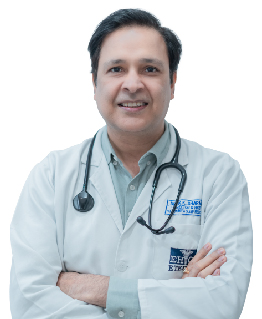Pulmonary Function Testing (PFT) is a diagnostic procedure performed to evaluate the functions of the respiratory system. These tests can also help pulmonologists to identify the severity of pulmonary dysfunction in our bodies. However, these tests can also be performed by a respiratory therapist, respiratory physiologist, or physiotherapist.
Why is it performed?
Doctors can order pulmonary function testing for a variety of reasons, including:
- Shortness of breath
- Asthma
- TB
- Chest cancer
- Lung cancer
- Chronic obstructive pulmonary disease
- Restrictive lung disease
- Impairment in chest
How are pulmonary function tests performed?
There are mainly two methods involved in PFT that mainly depend upon the information a doctor is seeking. These types are:
- Spirometry: It is the most common of the pulmonary function tests to measure lung function, especially the amount and speed of air a patient can inhale and exhale. This procedure is performed with a spirometer connected to a small electronic machine for assessing breathing patterns that identify conditions such as asthma, pulmonary fibrosis, cystic fibrosis, and COPD.
- Plethysmography: The equipment looks like a telephone booth in which the patient is required to stand. It is an airtight box attached to a plethysmograph that measures changes in volume in different areas of your body. It can also help your doctor calculate the volume of air your lungs can hold and assess the severity of lung disease.
What does a PFT measure?
PFT can evaluate the respiratory system thoroughly through several measurements, including:
- Tidal Volume: The amount of air inhaled and exhaled during a standard breathing procedure is called tidal volume.
- Residual Volume: The amount of air left inside the lungs after exiting is called residual volume.
- Total Lung Capacity: The volume inside the lungs to be filled with air is called full-lung capacity.
- Minute Volume: The total amount of air exerts per minute is called minute volume.
- Vital capacity: The total volume of air that the lungs can't exhale without putting much pressure is called the essential capacity of the lungs.
- Forced Vital Capacity: The amount of air exhaled forcefully and quickly after inhaling as much as one can is measured during this test.
- Forced Expiratory Flow: The average flow rate during the middle half of a forced vital capacity gets measured during this test.
- Peak Expiratory Flow Rate: This is the fastest rate to force the air out of the lungs is measured during this test.
- Forced Expiratory Volume: The amount of air that expired during the first, second, and third second of the forced vital capacity test is measured during this test.
The PFT measurements vary from person to person and on the type of disease they are experiencing. Hence, they're usually performed to evaluate the condition of the patient, critical or acute.
What is the need for pulmonary function tests?
Sometimes PFT is only done as a part of a routine physical checkup. However, there are many different reasons to perform these tests. These are done to check the prevalence of disease to ensure good respiratory health.
A pulmonary function test is done if a person is diagnosed with the following conditions:
- Allergy
- Respiratory infection
- Chronic lung conditions such as asthma
- Restrictive airway problems
- Trouble breathing due to injury in chest
PFT is also done before lung surgery or other procedures that involve the heart or lungs.
Why Eternal Hospital?
At Eternal Hospital, we have a highly qualified and dedicated team of urologists who are always committed to providing the latest and most advanced medical care to all our patients. Being a trusted name in healthcare, we act compassionately while ensuring confidentiality to those who need it. We have set high standards in patient-centric premium care and outstanding patient safety, and exceptional maintenance in a timely manner. In addition, we adhere to the use of up-to-the-minute innovations to offer state-of-the-art treatments to our patients with unparalleled results.


